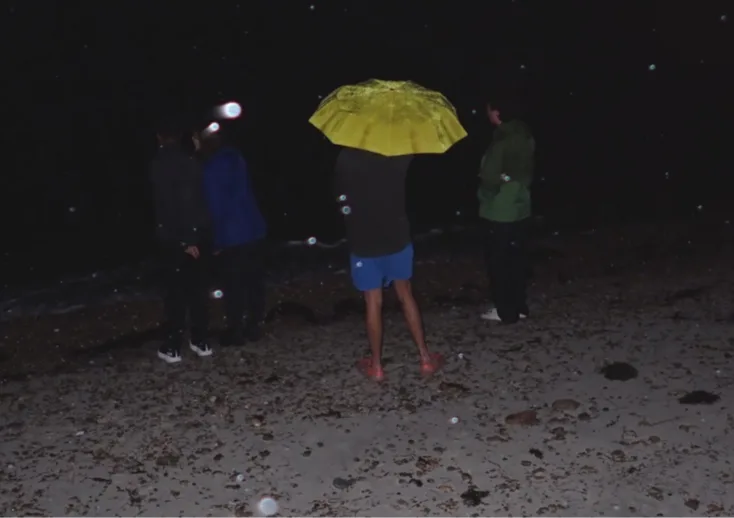Programs Blog
The Power of Film in Coral Conservation

Date: September 19, 2024
Location: SEA Campus, Woods Hole, Massachusetts
Weather: 68°F and rainy
My name is Keegan Kukucka. I am a junior at Syracuse University majoring in Biology with a focus in Environmental Science. My experience at SEA has been great so far. It is much different than the 200-person lectures that I normally attend at my home institution. The small class sizes mean that class time is more discussion focused, which is something that I have been getting used to, coming from large class sizes that are heavily focused on lectures. Our group is particularly small compared to the other group on campus, which is split up between two houses. I think this allows for a tightly woven sense of community, as the seven of us are basically always together. Whether it is preparing food, studying, just hanging out, or going on late night walks in the rain. This sense of community is something that SEA really focuses on. The relationships we build on the shore component will allow us to work better as a team while doing our field work. This sense of community isn’t confined just within our program, however. On Tuesday we had the chance to have a guest speaker, Richard Vevers, come talk to us about a documentary that he was a part of. Vevers now works at Woods Hole Oceanographic Institution, a local institution within the scientific community of Woods Hole.
Before being an ocean conservationist, Vevers had a successful life in advertising. He talked about his work and how one day he decided he could be doing more and making a difference. He dropped advertising and in 2010 founded The Ocean Agency. Vevers’ background in advertising allowed him to communicate environmental issues in a way that would resonate with the general population. This is seen in the documentary Chasing Coral, which we had the pleasure of watching a couple days after hearing Vevers speak. This documentary takes a deep dive into a major environmental crisis, the rapid declining of coral reefs. This film captivates viewers by using beautiful underwater cinematography, while focusing on the message that these reefs are essential to marine life, and they are dying at an increasing rate. The part that stuck with me the most from this film was seeing the time lapses that they showed during the climate conference. These time lapses showed corals degrading from their vibrant colors and start to bleach, and then become fully white, then covered with algae, and then dead. This stuck with me because the clips that they were using for these time lapses were only months apart start to finish.
This documentary is not just a showcase of the environmental crisis that is currently occurring around the world, but it is a call to action. The film ends with a hopeful message, showing young children becoming interested in the reefs and urging viewers to join the fight against climate change. It calls for systematic change and highlights some communities that have already started to step to the call to action.
I’d like to thank Richard Vevers for the talk that he gave to us, as well as my friends, family, and girlfriend that have helped me get to where I am today.
Keegan
Recent Posts from the Ships
- Ocean Classroom 2024-A collaborative high school program with Proctor Academy
- Collaborations and Long-term Commitments: SEA’s Caribbean Reef Program Sets a Course for Coastal Programs that Compliment Shipboard Experiences.
- Sea Education Association students prepare for life underway using state of the art nautical simulation from Wartsila Corporation.
- SEA Writer 2022, Magazines From the Summer SEA Quest Students
- Technology@SEA: Upgrades Allow Insight into Ocean Depths
Programs
- Gap Year
- Ocean Exploration
- High School
- Science at SEA
- SEA Expedition
- SEAScape
- Pre-College
- Proctor Ocean Classroom
- Protecting the Phoenix Islands
- SPICE
- Stanford@SEA
- Undergraduate
- Climate and Society
- Climate Change and Coastal Resilience
- Coral Reef Conservation
- Marine Biodiversity and Conservation
- MBL
- Ocean Exploration: Plastics
- Ocean Policy: Marine Protected Areas
- Oceans and Climate
- Pacific Reef Expedition
- The Global Ocean: Hawai'i
- The Global Ocean: New Zealand